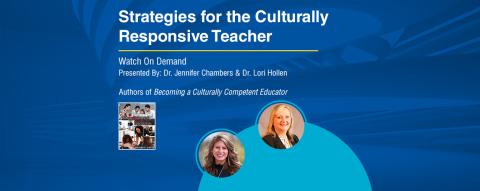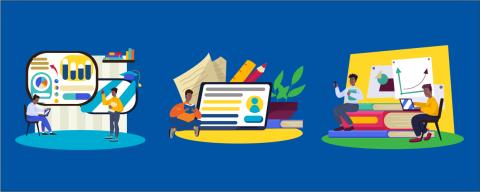
Challenging Ourselves in Challenging Times: Stress, Coping, and Resilience in an Era of Crisis
As we continue to experience the devastation of the COVID-19 pandemic and unrest due to racial and social tensions, many individuals and families are experiencing increased stress and anxiety. Simply put, stress is how our bodies react to a stimulus or change to reduce taxing demands. It is an inevitable aspect of daily life, but not all stress is bad as we normally think. Some stress is beneficial and can provide positive impacts. We refer to this good stress as “eustress.” It makes us feel positive, excited, fulfilled, and can motivate us in challenging situations. On the other hand, “distress” is harmful. This “bad” stress can result in an inability to handle the challenges of life. People may feel that they have lost control of their lives, things may be falling apart, and they cannot manage responsibilities quickly or efficiently. Prolonged distress, or chronic distress, can have short-term and long-term health implications for body and mind. Unchecked stress can lead to a crisis. Everyone copes differently, especially during a pandemic and social/racial unrest. Normalcy has changed, and people must find a new sense of equilibrium.
So, what can we do during challenging times to cope with inevitable stressors, increase resiliency, and remain healthy, physically and mentally?
- Try to Create Safe New Challenges for Yourself: We often live lives around the same types of people who live in the same neighborhoods who think and behave similarly. We never really have to think beyond what we historically have felt or know about other people, their cultures, or their plight. We are not often challenged to think about how our behavior impacts others. Challenge yourself: take the risk of learning more about people you normally do not talk or socialize with. Getting out of your own “little world” by connecting with others helps you understand varied life experiences.
- Engage in Exercise and Physical Movement: This can take many forms and levels. No one is asking you to be the next body builder, but this is a good time to bike ride, walk, or jog. Additionally, home exercise, Yoga, and other forms of physical stimulation have positive health impacts, reduce stress, and aid in sleep. Exercise has also been known to provide energy for daily life.
- Promote Prayer and Meditation: Like physical exercise, mentally stimulating practices help our mental wellness and provide an internal mechanism to sort out daily struggles. Prayer has incredibly positive impacts on mental framing, and various forms of mindfulness help re-think, re-frame, and re-discover our ability to handle stressors and make wiser decisions. Mediation also reduces anxiety and promotes greater self-awareness.
- Practice the Skill of Empathy: In tough times when emotions are high and the future is uncertain, be honest with yourself about your feelings. Empathy is a basic human emotion, and the inability to put yourself in someone else’s shoes can be problematic both for you as well as the targeted group or person of which you feel is undeserving of common respect, access, and fair treatment. Explore where some of your negative emotions originate and begin to work through them in a positive and supportive manner. By digging deeper into your own emotional basis for empathy, or the lack of it, you can feel more like a change agent rather than a stressed bystander.
- Embrace Family and Friends: The positive effects of family, friends, and social networks can reap protective benefits. Families can provide havens of safety and emotional support. Our friendship networks offer other voices and viewpoints to help understand current issues, talk through problems, and find solutions. Cultivating and harnessing family support is a positive step toward managing stress in daily life and during social unrest. Spend time working through family issues and explore root causes of family disharmony to reach meaningful resolutions. Healthy family and friendship networks are linked to better health and longevity.
- Get Serious About Your Overall Health: In addition to exercise, this is a time to consider how vulnerable we are as human beings. Focus on physical and mental self-care. The COVID-19 pandemic has opened our eyes to a worldwide public health dilemma that cannot be ignored. Arm yourself and your family with tools, knowledge, and strategies to protect the health and well-being of you and your loved ones. COVID-19 has demonstrated that life is fragile. The best remedy is to learn about the virus and follow the guidelines of health officials: practice social distancing, wear masks, and maintain cleanliness through regular handwashing and surface cleaning.
- Avoid Excessive Alcohol or Drug Use: It is easy to grow overwhelmed, and you may want to drink a little more than normal or take a few extra pills to relax. Alcohol and drug abuse often increase with stress and anxiety. This is a potentially dangerous, yet common, means of coping. It is crucial to monitor your drinking and other drug use during pandemics and rapid social change.
- Seek Professional Help: If you cannot seem to deal with your stress, seek professional help or counseling. You do not have to suffer alone. Doctors, mental health counselors, therapists, and psychiatrists can help you sort out issues and get on the road to problem solving.
Author’s Note and Disclosure: Some of the content is based on previous lectures, the recent edited textbook on Stress, Coping, and Resiliency: Challenges and Experiences of Modern Families and over 30 years of teaching and practical experience working with diverse family populations in the areas of health, substance abuse prevention and mental health, and disease prevention. Feel free to follow Dr. Harris’s Twitter @DrHarris06 or visit and learn more about Dr. Harris’s work and interests at: https://humansciences.fsu.edu/family-child-sciences/faculty-staff/harris/
Dr. Harris is Family Scientist and an Associate Dean for Academic Affairs in the College of Human Sciences at Florida State University. He is an Associate Teaching Professor in the Department of Family and Child Sciences. He is interested in the psycho-social and health status among ethnically diverse families across the life course with an interest in midlife and older populations. A focus on family stress, violence, mental health, substance abuse, and disease prevention are of primary interest to him within the context of the family and the community.



